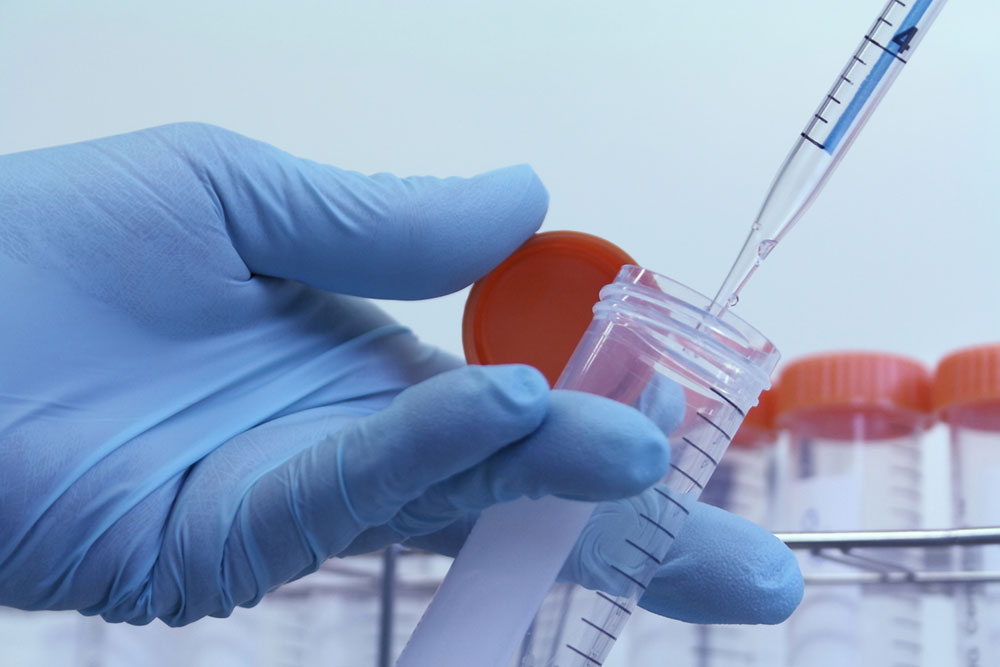Comprehensive Guide to Helicobacter pylori Infection: Causes, Symptoms, and Effective Treatments
This comprehensive article explores Helicobacter pylori infection, detailing its causes, transmission routes, symptoms, associated health risks, and modern treatment options. Emphasizing early detection and proper management, the guide offers valuable insights for maintaining gastrointestinal health and preventing serious complications from ongoing infections.

Comprehensive Guide to Helicobacter pylori Infection: Causes, Symptoms, and Effective Treatments
Helicobacter pylori, commonly known as H. pylori, is a type of bacteria that colonizes the human stomach and plays a significant role in various gastrointestinal health issues. Despite its widespread prevalence, many individuals infected with H. pylori may remain completely asymptomatic, unaware of their infection until complications arise. Understanding the nature of H. pylori, how it spreads, the symptoms it causes, and the available treatment options is crucial for effective management and prevention of serious health consequences.
Origin and Transmission of Helicobacter pylori
H. pylori was first discovered in the 1980s, revolutionizing the understanding of gastric diseases. While research continues to investigate its precise transmission pathways, it is widely accepted that the bacteria can spread through several common routes. The main modes of transmission include:
Saliva exchange: Kissing or sharing utensils with an infected individual can transfer the bacteria.
Contact with contaminated vomit: If vomit from an infected person contaminates surfaces or food, it can serve as a transmission source.
Exposure to fecal matter: Poor sanitation and contaminated water sources can facilitate fecal-oral transmission.
Understanding these routes highlights the importance of good hygiene, sanitation, and safe food practices to prevent infection.
Recognizing Symptoms and Indicators of Infection
Many H. pylori infections are silent, presenting no obvious signs or symptoms. However, when symptoms do occur, they can significantly impact an individual's quality of life and signal underlying health issues. Common symptoms associated with H. pylori include:
Severe or persistent stomach pain, often in the center or upper abdomen
Nausea and frequent vomiting, sometimes with blood
Excessive burping, bloating, and a feeling of fullness after meals
Unpleasant bad breath that doesn't improve with oral hygiene
Unexpected weight loss without changing diet or lifestyle
Loss of appetite and early satiety
Timely recognition of these symptoms is critical, prompting individuals to seek medical evaluation and testing.
Potential Health Risks and Complications
While some people carry H. pylori without adverse effects, prolonged infection can lead to severe health complications. The bacteria's ability to damage the stomach lining can result in significant conditions such as:
Ulcers: H. pylori damages the mucous layer protecting the stomach lining, leading to sores or ulcers, which can cause bleeding and discomfort.
Gastritis: Inflammation of the stomach lining caused by bacterial infection, which can evolve into chronic gastric issues if untreated.
Gastric Cancer: Long-term infection, especially if associated with persistent inflammation and ulcers, increases the risk of gastric malignancies. Researchers have identified H. pylori as a major risk factor for certain types of stomach cancer.
Understanding these risks emphasizes the importance of early detection and management to prevent serious outcomes.
Diagnosis and Testing for H. pylori Infection
Accurate diagnosis is the foundation of effective treatment. Various testing methods are available, each with specific advantages:
Urea Breath Test: A non-invasive test where the patient ingests a urea solution; the bacteria's urease enzyme breaks down urea, releasing carbon dioxide detectable in the breath.
Stool Antigen Test: Detects H. pylori antigens present in fecal samples, useful for initial diagnosis and post-treatment confirmation.
Endoscopy with Biopsy: An invasive but definitive test involving inserting a flexible tube into the stomach to obtain tissue samples for laboratory analysis.
Blood Test: Detects antibodies against H. pylori but is less preferred due to possible false positives post-treatment.
Selection of testing methods depends on clinical presentation, patient preference, and medical advice.
Effective Treatment Strategies for Helicobacter pylori
Once diagnosed, eradication of H. pylori is essential to prevent complications. Treatment usually involves a combination therapy known as triple or quadruple therapy:
Antibiotics: Typically, two different antibiotics are prescribed to ensure comprehensive eradication of the bacteria. Common antibiotics include amoxicillin, clarithromycin, metronidazole, and others.
Proton Pump Inhibitors (PPIs): Medications such as omeprazole or lansoprazole reduce stomach acid production, creating an environment less hospitable to H. pylori and aiding in healing.
Protective Agents: Sometimes, medications like bismuth subsalicylate are added to strengthen the treatment regimen, especially in resistant cases.
Follow-up testing approximately four weeks after completing therapy is vital to confirm eradication. If the infection persists, alternative treatment regimens or prolonged therapy may be necessary. It's important to adhere strictly to the prescribed treatment to ensure the bacteria's complete removal.
Early diagnosis and proper treatment significantly improve outcomes and reduce the risk of recurrence or complications.
Prevention Tips and Strategies
Prevention of H. pylori infection hinges on maintaining good hygiene practices and sanitation. Specific steps include:
Regular handwashing with soap and water, especially before eating and after using the toilet
Avoiding sharing utensils, cups, and food with infected individuals
Consuming food and water from reputable sources with proper sanitation protocols
Practicing food safety, including thorough cooking of meats and proper storage
Though there is no universal vaccine against H. pylori, ongoing research aims to develop effective preventive measures in the future.
Overall, understanding H. pylori infection, its transmission, symptoms, and treatment options can significantly contribute to better gastrointestinal health and reduce the risk of severe gastric diseases. Staying vigilant, seeking timely medical care, and adhering to hygiene practices are essential steps in managing this common bacterial infection effectively.





